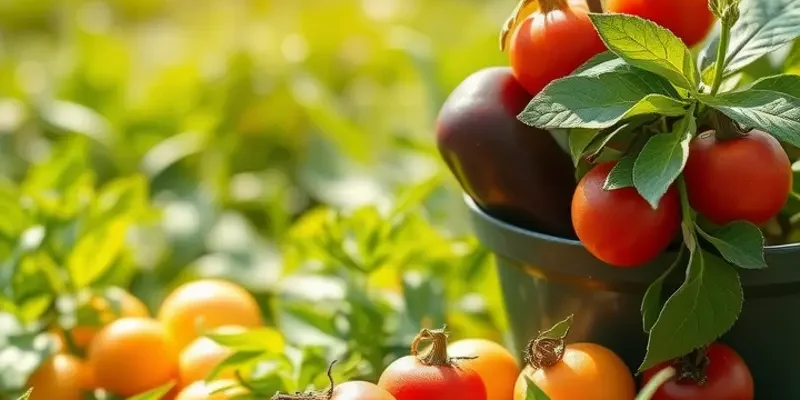Citrus zest adds a unique brightness to dishes, but it’s not always on hand. Whether you’re out of lemons or looking to reduce acidity, understanding how to substitute citrus zest can enhance your cooking experience. This guide offers practical alternatives that maintain the essence of citrus flavors, ensuring your recipes remain flavorful and vibrant. Ideal for home cooks and dietary-conscious individuals, discover how to make your culinary creations shine, without the hassle.
Exploring Zest Alternatives: Fruits and Herbs

When searching for a citrus zest substitute, fruits and herbs can offer the vibrant flavors you crave. Some options even bring unique nuances that enhance your dishes in unexpected ways.
Fruits as Zest Alternatives
Lemon Balm: This herb, part of the mint family, exudes a citrusy aroma with a hint of sweetness. Its leaves, when finely chopped, add a mild lemon flavor to salads, dressings, and fish dishes. While it lacks the concentrated punch of zest, the freshness it provides is a delightful alternative.
Pineapple: With its sweet-tart flavor, pineapple can stand in for zest where sweetness complements the dish. Use finely grated pineapple in marinades or desserts to impart both moisture and brightness. It’s particularly effective in tropical-inspired recipes.
Apple Peel: Although subtle, apple peel brings a tart nuance reminiscent of citrus zest. Especially suitable for baking, it complements spices like cinnamon and nutmeg. Peel an apple thinly, then finely chop the peel to integrate into your batter or dough.
Herbs as Zest Alternatives
Lemongrass: This herb is another potent citrus alternative. Coarsely chop the stalks and infuse them into soups, broths, or stir-fries. Though it requires a longer cooking time to mellow, it offers a robust lemony flavor, especially favored in Southeast Asian cuisine.
Mint: Mint’s coolness doesn’t perfectly mimic citrus, yet its refreshing profile can rejuvenate dishes similarly. Chop fresh mint leaves roughly and incorporate them into salads, sides, or desserts where their cool sweetness can shine.
Basil: Particularly lemon or lime basil varieties can mimic citrus zest well. Add them to sauces, dressings, or as a garnish, and enjoy the subtle citrus undertone alongside its herbal depth. Notably, paired with tomatoes or mozzarella, it can transform a simple dish.
For those interested in exploring more about how herbs can enhance cooking, particularly with a focus on functionality, consider this guide on functional herbs for mood stability. These herbs can do more than just substitute; they can transform how you experience food.
The key to using these alternatives is experimentation. Each brings its signature character—embracing sweetness, aromatic depth, or tartness—to elevate your culinary creations. Whether substituting due to an empty pantry or from a desire to innovate, these fruits and herbs provide a palette of flavors ready to redefine the role of citrus in your cooking adventures.
Nuts, Oils, and Extracts: Unexpected Zest Substitutes

Enhancing your dishes with citrus zest is a time-honored tradition. Yet, it is not the sole method to achieve zestiness. Nuts, flavored oils, and extracts provide exciting alternatives. Each ingredient introduces distinct characteristics and opens new culinary possibilities.
Nuts bring an unexpected yet delightful zest substitute to the table. Citrus-flavored almonds are a prime example. They offer a subtle tang, perfect for topping salads or incorporating into batters. Meanwhile, using freshly grated nutmeg or ground coriander can replicate the warmth and spice often imparted by citrus zest.
Flavored oils offer a different approach towards zest substitution. Lemon or orange-infused olive oils, in particular, can imbue your dish with a vibrant aroma and taste. A drizzle over roasted vegetables or freshly baked bread can elevate the entire meal. Infusing your own oil is easy, too: simply combine citrus peels with olive oil, let it steep, and voilà!
Similarly, extracts like orange or lemon capture the essence of their fruit counterparts without the need for physical zest. A few drops of lemon extract in your cake batter can transform the flavor profile from mundane to magnificently bright. Balance is critical here, as extracts are potent and can overwhelm if not used sparingly.
Incorporating nuts, oils, and extracts also integrates well with minimal waste cooking methods. By maximizing these ingredients’ shelf life and versatility, you reduce food waste, creating eco-friendlier dishes. Learn more about low-waste cooking and preparation and integrate these sustainable practices into your kitchen routine.
An adventurous cook should not shy away from blending these zest substitutes. Consider a dressing made from lemon oil, nutmeg, and a hint of orange extract. Each element’s complexity combines to create a rich flavor tapestry. This combination can garnish a fresh fruit salad or a succulent roast.
Nuts, oils, and extracts offer cooks the flexibility and creativity to maintain zestiness in their dishes without relying on actual citrus zest. Their distinct flavors complement one another, crafting depth and freshness in every bite. Through experimentation, you can achieve culinary brilliance, expanding the boundaries of traditional seasoning.
Final words
Finding a substitute for citrus zest allows you to maintain flavor in your meals without stress. By leveraging fruits, herbs, nuts, and oils, you can adapt recipes to your pantry’s contents and dietary needs. Armed with this guide, home cooks and health-conscious individuals can create dishes filled with character and zest, ensuring each meal shines brightly, regardless of its ingredients. Remember, cooking is about creativity—don’t hesitate to experiment with the alternatives that resonate most with you!







